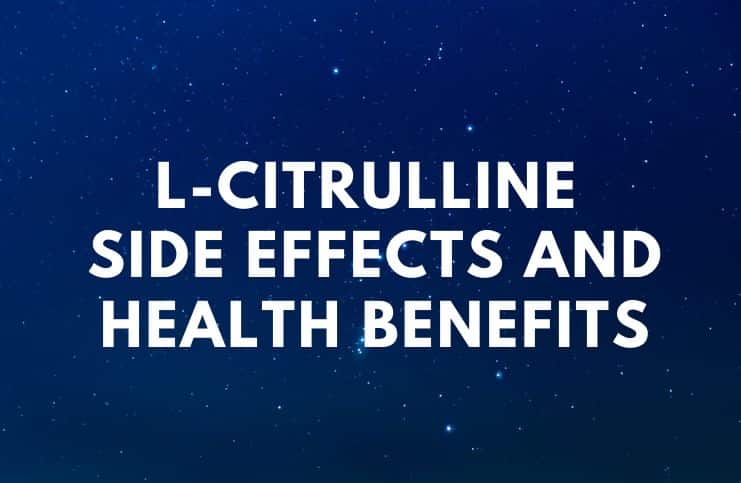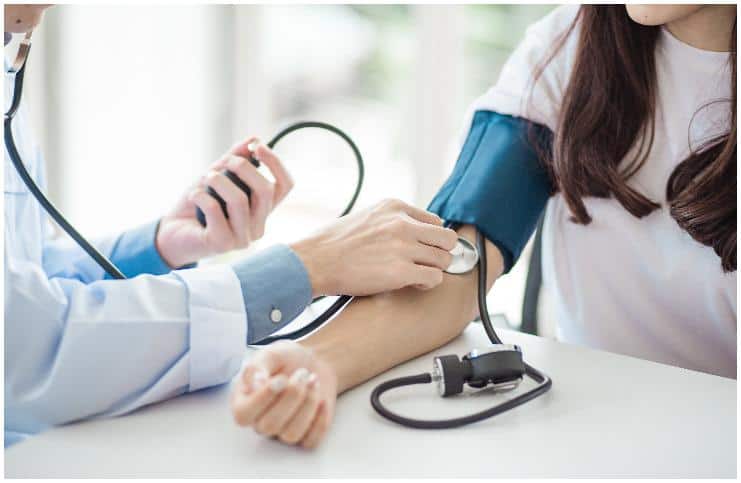L-Citrulline Side Effects and Health Benefits:
L-Citrulline is a non-essential amino acid, which means you don’t have to get it from foods because the body can produce it as needed. It is manufactured by a variety of other amino acids in the liver.
Its name comes from the Latin word ”citrullus” (watermelon), which is a natural source of it. Other food sources include soybeans, pumpkins, squashes, cucumbers, peanuts, and kidney beans.
L-Citrulline’s role in the body and health benefits
Urea cycle
This amino acid plays a key role in the urea cycle, which is the process whereby the body eliminates toxic byproducts of digesting protein and generating cellular energy. The cycle begins in the mitochondria of hepatocytes and ends in the cytoplasm.
Enhances athletic performance
Bodybuilders and some other athletes use it to improve athletic performance and to prolong endurance during both anaerobic and aerobic exercise sessions.
Improves blood flow
It does so by creating NO-nitric oxide, a chemical important to heart and blood vessel health. Excess citrulline, numerous studies have shown, increases the amount of arginine in the blood, leading to increased nitric oxide production.
Arginine works well for heart health and helps maintain a healthy immune system. In addition, arginine removes toxicities like ammonia from the physical body and helps keep obesity and type 2 diabetes from becoming issues.
Furthermore, more nitric oxide means increased blood flow to muscles during exercise, which allows them to last longer under duress and produce bigger muscle pumps for weightlifters.
Doctors occasionally prescribe supplements with this amino acid after heart surgery to prevent pulmonary hypertension. In those cases, they are given intravenously.
Mild erectile dysfunction
It may also help to treat mild erectile dysfunction in men. While doctors consider this amino acid is not acting as fast as erectile dysfunction drugs, such as Viagra, it still offers some help and with a few side effects too.
In contrast to Viagra, which may help some men have an erection 30 minutes after they take a pill, but will do nothing to correct the real problem, this supplement helps to restore health to the blood vessels in the penis, correcting the underlying cause of erectile dysfunction.
Atherosclerosis
Supplementation with the nitric oxide boosting substances, L-arginine and L-citrulline, along with other antioxidants, has been demonstrated to delay endothelial senescence despite high glucose levels or a high-fat diet.
This delay in endothelial senescence through NO and/or eNOS activation may have clinical utility in the treatment and prevention of atherosclerosis associated with diabetes and menopause, and with aging.
Dosage
The dosage for this amino acid usually ranges between 6 and 18 grams daily, and it is commonly sold in the form of citrulline malate and comes in powder form.
The suggested dosage depends on what disease you are trying to prevent or treat but is usually used up to 9 grams per day, divided throughout the day.
L-Citrulline side effects
Because it is created by the body, the supplement is believed to be safe. Due to the fact that there is insufficient clinical data pertaining to the safety of the supplement in pregnant or nursing women, usage is not advised for those groups.
Moreover, it may interact with some prescription drugs, including certain medications used to treat cardiovascular disease, hypertension, and erectile dysfunction.
By dilating blood vessels and increasing NO, the amino acid actually lowers overall blood pressure. While this can be beneficial for users with prehypertension, some individuals already have low blood pressure, and further reduction can be harmful.
READ THIS NEXT:
Rutin Health Benefits and Adverse Effects
Foods High in Quercetin (List) – A Powerful Antioxidant
Molybdenum Health Benefits And Side Effects
References http://www.biochemj.org/content/33/6/902 https://pubchem.ncbi.nlm.nih.gov/compound/833#x291 https://www.ncbi.nlm.nih.gov/pubmed?term=PMID%3A%2016798303 http://www.sciencedirect.com/science/article/pii/S0006291X14018178


